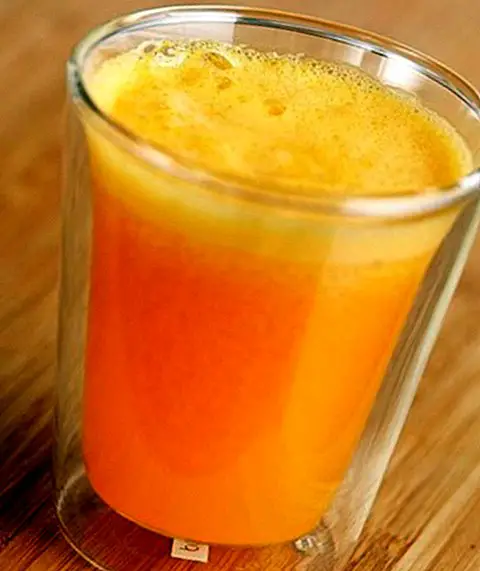Beneficial diet against flu
With the arrival of the change of season, especially autumn, it also means the beginning of a much colder time, which usually causes a decrease in our defenses and the arrival of the most typical and usual infectious diseases of this time of year.

The flu, the colds and the colds they are in fact the most common diseases after the arrival of autumn, and cases increase as the season passes, and has the highest levels when winter also sits between us.
The one named as seasonal flu is the most common disease, consisting of an acute viral infection caused by a flu virus, which is divided into: influenza type A, influenza type B, and influenza type C (whose cases are less frequent).
It is caused by what is medically termed as seasonal epidemic, which are repeated annually during the autumn and winter seasons in the temperate regions. And although a useful option to prevent contagion is the flu vaccine, it is true that the risk of catching the virus is not 100% eliminated.
Once we have become ill, it is essential not to self-medicate and follow the advice that our doctor has indicated. It is true that the medications prescribed by the specialist can help reduce the most typical symptoms (headache and malaise, fever, sore throat, cough ...), but it is also interesting to follow a proper diet, and rest for at least a week.
When it comes to your own diet, we can follow the following basic tips:
- Foods rich in vitamin C: this vitamin is an antioxidant nutrient that helps to strengthen the organism naturally, and helps the elimination of toxins that our body accumulates and therefore does not need. Citrus, peppers and green and dark leafy vegetables are ideal.
- Foods rich in vitamin A: is a vitamin that helps protect the lining of the lungs and throat, preventing them from getting infections. Foods such as green and dark vegetables, yellows, oranges and reds are ideal, as well as foods of animal origin such as mackerel or liver.
- Foods rich in B vitamins: vitamins that, in addition to being beneficial for the nervous system, provide immunostimulant properties, which means that they help to strengthen the immune system. Highlights include whole grains, green vegetables, legumes and mushrooms.
- Foods rich in zinc: it is a mineral that helps to reduce the duration of the process that usually lasts the flu. Among the foods richest in this mineral include eggs, vegetables and vegetables (such as celery, eggplant or asparagus), seafood and liver.
- Drink liquids: It is essential to avoid dehydration and to help our body to eliminate the virus. It is ideal water and natural juices, but also infusions and teas provide fundamental cleansing benefits against influenza.
If the flu has not caught you yet and you want to strengthen your immune system, we advise you to read our note dedicated to increase defenses.
Image | flash.pro This article is published for informational purposes only. You can not and should not replace the consultation with a Nutritionist. We advise you to consult your trusted Nutritionist. ThemesFlu



